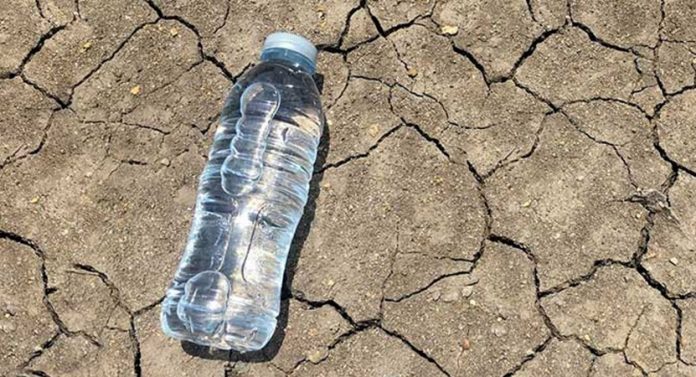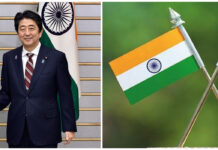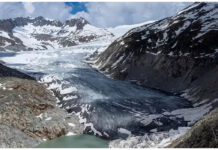Water Crisis
Planet Earth in the Solar System is the only living planet. For all the living organisms to grow appropriately there is a requirement of optimum light, water and air. Planet Earth is highly equipped with all these conditions. If anyone of the factors gets diminished when there is danger of survival. Thank God! Light source is not under the control of human beings otherwise that would have also been in danger, talking on air this also is not in the human control but with their faulty ways of living have started polluting the air and making it impure and unbreathable for all the living organisms. Now the third important constituent for a living is water. This renewable resource is in plenty as we are surrounded by 71% of water and only 21% is land, still, we are saying there is going to be water crisis very soon, this seems to be unbelievable as we find water everywhere.
Water being the most available renewable source on Earth amongst all other resources and still, we say water crisis. We have to believe this. We always say water is the result of precipitation from the sky; it surrounds us in the form of oceans, polar ice caps and mountain glaciers. So, there is no need to worry, wherever we see we find water. But one has to come out of this myth. It is true that water is in plenty on this earth but all the water is not usable. We can only use fresh water which is in scarcity and now resulting in a water crisis.
Water is the biggest source of life on Earth and the more exciting part is that traces of water has also been observed on planet Mars too, and that was the first indication to realize that life might have existed there.
Water being the biggest spread resource, then to avoid water crisis why not seawater can be harnessed and used for drinking and other important uses?
That is a great question but the answer to this is, it is not possible and feasible. The reasons for it are that the basic techniques which can be used are distillation. It is the process of boiling water, the steam is generated and condensing the same which converts into a liquid which will be salt-free and now this liquid can be used for drinking and other uses. If water is required in small quantities, this can be done. But a huge quantity is required for a city, for this, the whole process requires large consumption of fuel and big boilers, which are to be installed for boiling, and that is not possible. So, the water crisis cannot be overcome by this process.
The other method to overcome water crisis can be used is of electrical currents, which when passed through the water can separate out salt and other minerals and the other methodology to overcome water crisis is through reverse osmosis when passed at high pressure through membranes separates out salt and other impurities. Both the above methods require high energy which makes them costly, and also lots of gases will be emitted which will lead to global greenhouse gas emissions. Another problem could be that sucking in seawater can also suck in fish and other water animals which could damage water ecosystems. The salty residue left in the plants will be released back into the sea and this will be toxic to marine life. So, these processes were also not found to be fit for overcoming water crisis. Only the best way is to use it judiciously. There are many good methods of water conservation and not let the conditions of water crisis arise.
On the other hand, the water crisis has engrossed so hard in some areas of the world for which they are finding it hard to generate an alternative. The first desalination plant has just started operating in Cape Town, after some severe budget controversies. Though China, Pakistan and India are exploring new desalination plants still this is under development.
Where is the water being used up?
Freshwater is used for many purposes; Agriculture uses about 70% across the globe. Enormous numbers of manufactured goods also require large quantities of water. Needs are also growing for food and industry both. Everything we are doing requires water, for drinking, washing, growing food, and for industry, construction and manufacturing. The population is going to be more than 10 billion by 2050, and the situation is going to grow worse.
For years the city Cape Town in South Africa had been using more water than it could sustainably conserve it and this lead to unequal distribution of water to rich and poor. By the end of last year, a crisis point arose and the city’s government warned of the worse condition as imminent day zero, where there will be no water supply, taps would run dry and there would be no more water.
Also given instructions to the public to use water more efficiently, share it, and changes in practices such as irrigating by night and reusing “grey” water from washing machines or showers, and eventually a new desalination plant.
Not only Cape Town, but there are also many more water-scarce areas increasing. According to data from the Nasa Grace – Gravity Recovery and Climate Experiment – satellites over a 14-year period discovered 19 hotspots around the world where water resources are being rapidly depleted, with potentially disastrous results. They include areas of California, north-western China, northern and eastern India, and the Middle East. The climate change scientists had predicted that areas of the world already prone to drought were found to be getting drier, and areas that were already wet getting wetter.
Effective ways of Water Conservation
- Best way to overcome the water crisis is to use water judiciously and save it for the generations coming up.
- Avoid leakages in pipes and taps as dripping can leak 300 liters a year to avoid a water crisis.
- For domestic users in developed countries, the water crisis can be controlled by installing water meters, this could have been a great help which could record the usage and if wasted they can be penalized.
- Educate households for water crisis on their water usage, and encourage them not to waste water, particularly, from short flush toilets to spray taps and shower heads.
- Some efficient methods of irrigation for water crisis control can be acknowledged like water can be sprayed on crops as water evaporates before it reaches the roots. Drip irrigation, where water directly supplied to the roots of each plant.
Marc Stutter, of the James Hutton Institute, remarked that traditional methods can also be useful in restoring water for later use and will be of great help at the time of water crisis. He said that in Rajasthan, in India, small dams called johads enabled the periodic rains to store before they dissipated across the land. The johads were very advantageous “the miraculous way of renewal to a green landscape and the surface water returning”.
“Don’t flush our planet’s most valuable resource”
“Conserve water, conserve life”
“Avoid Water Crisis”
“Better late than Never”

























